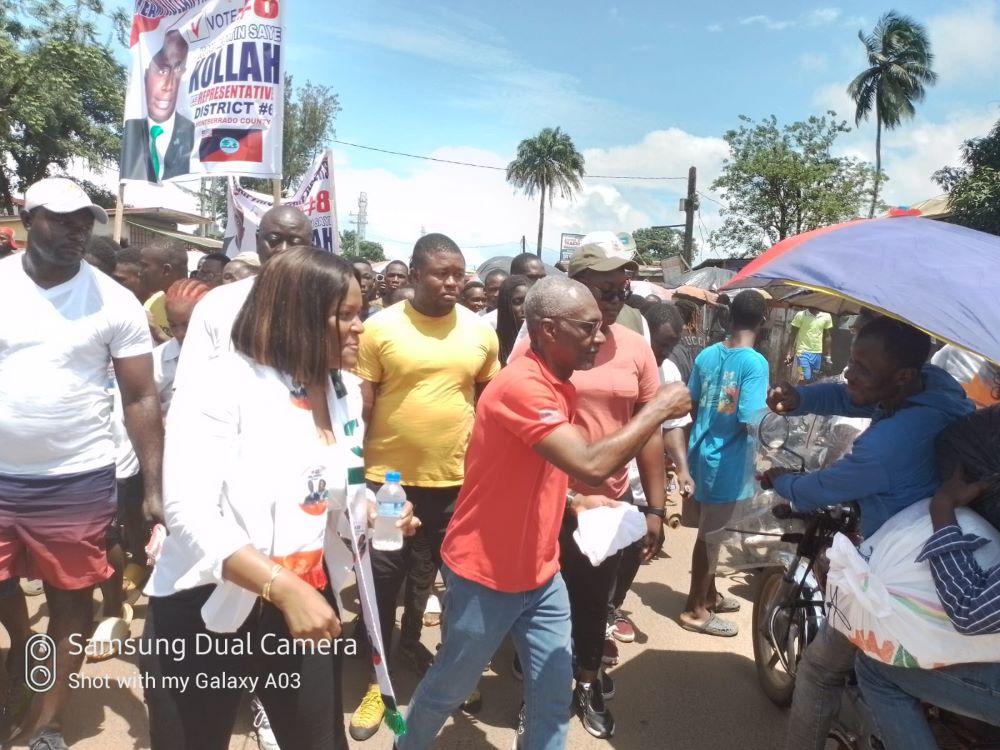Liberia’s political landscape, as the 2029 elections approach, is dominated by a disconcerting trend: the prevalence of empty rhetoric and unfulfilled promises, particularly from the opposition parties vying for power. These parties, ideally positioned to offer alternative visions and solutions, are failing to articulate clear and compelling messages that resonate with the pressing concerns of the Liberian people. Instead of presenting detailed policy proposals and engaging in constructive dialogue, they resort to vague pronouncements and unsubstantiated criticisms, creating a void in political discourse and fostering a sense of disillusionment, especially among vulnerable groups like students, youth, and the impoverished. This disconnect between the political elite and the lived realities of ordinary citizens represents a significant obstacle to meaningful progress and democratic development.
The current opposition strategy appears to prioritize political posturing over genuine engagement with the electorate. Rather than offering concrete solutions to the challenges facing Liberia, opposition parties often engage in superficial critiques of the ruling party without presenting viable alternatives. This “noise,” devoid of substance and actionable plans, alienates citizens seeking genuine change and perpetuates a cycle of political stagnation. The youth, representing a significant portion of the population and a crucial demographic for future progress, are particularly affected by this superficiality. They yearn for discussions focused on education, job creation, and infrastructural development, but these vital concerns are often ignored in the prevailing political discourse. This lack of meaningful engagement disenfranchises the youth, suppressing their voices and hindering their potential to contribute to national development.
The consequences of this messaging crisis extend beyond political apathy. The opposition’s failure to connect with the electorate, particularly the youth, fosters a sense of futility and discourages active participation in the political process. Students and young people, despite their potential to be agents of change, increasingly perceive political engagement as ineffective and irrelevant to their daily struggles. This disengagement further marginalizes their voices, leading to their underrepresentation in policy formulation and perpetuating cycles of poverty and hopelessness. Moreover, the pervasive poverty that grips many Liberians demands urgent and innovative solutions, not empty rhetoric. The opposition must move beyond mere criticism and present concrete plans that address the root causes of poverty and offer pathways to economic empowerment.
To effectively address the needs of the Liberian people, the opposition must adopt a more grounded and participatory approach. This involves engaging directly with communities, particularly the youth and students, through town hall meetings, workshops, and outreach programs. These platforms can facilitate direct dialogue, enabling opposition leaders to understand the concerns of ordinary citizens and incorporate their perspectives into policy development. Listening to the lived experiences of the people is crucial for crafting relevant and impactful messages that resonate with their aspirations. This grassroots engagement can empower citizens, fostering a sense of ownership and participation in the political process.
Beyond direct engagement, the opposition must also prioritize authenticity and relatability in their messaging. Political slogans and emotionally charged rhetoric, when divorced from the realities of citizens’ lives, lose their impact. Instead, a narrative grounded in the everyday experiences of Liberians can foster a deeper connection with the electorate. By acknowledging the struggles of ordinary people and offering a tangible vision for a better future, the opposition can build a platform for unity and collaboration, bringing together diverse groups under a common goal. This shift in messaging requires a commitment to transparency and accountability, ensuring that these principles are not just empty slogans but integral components of their engagement with the citizenry.
The path forward for Liberia’s opposition parties requires a fundamental shift in their approach to political engagement. They must prioritize substance over slogans, action over rhetoric, and genuine engagement over political posturing. By listening to the needs of the people, particularly the youth and students, and by developing concrete, actionable proposals, the opposition can position itself as a viable alternative capable of addressing the country’s complex challenges. This transformation will not only revitalize the political landscape but also empower citizens, fostering a more informed and engaged populace. Ultimately, the liberation of Liberia from its current challenges lies in the hands of those who dare to listen, act, and craft a narrative that transcends empty rhetoric, recognizing the shared humanity of a nation striving for a brighter future. The 2029 elections present an opportunity for the opposition to demonstrate their commitment to genuine change and to offer a pathway towards a more prosperous and inclusive Liberia.














